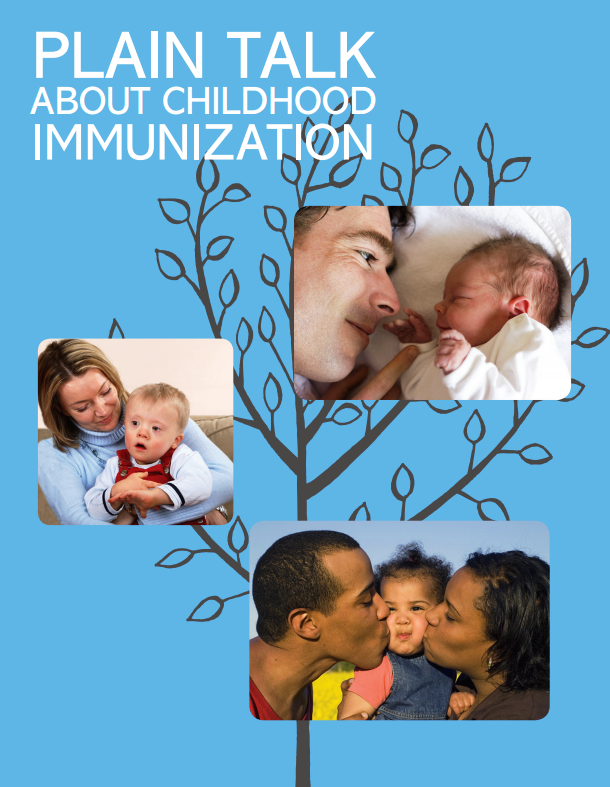Immunizations are one of the greatest medical success stories in human history because they have saved millions of lives and prevented illness and lifelong disability in millions more.
We can prevent many serious childhood disease by using vaccines routinely recommended for children. Since the introduction of these vaccines, rates of diseases, such as menigits, polio, rubella, and diphtheria have declined by 95 to 100 percent.
Before we had vaccines, hundreds of thousands of children got infected and thousands died in the U.S. each year from these diseases. Without immunization or low rates of immunization, serious outbreaks can recur.
Vaccine Safety
All parents want to do what’s best for their kids and vaccine safety is a concern for many. Parents get a lot of conflicing information online, in the press, and in books and magazines. The Washington State Department of Health developed a guide, Plain Talk About Childhood Immunization, which gives you the facts and answers the most common questions parents have about vaccines.
Recommended Immunization Schedule
We know you want to protect yourself and your child from disease. But it’s hard to keep straight all the different diseases and the vaccines that can prevent them. Vaccines do such a great job of preventing dangerous diseases that it’s easy to forget what diseases look like, how easy they can spread, and the real-life effects of getting them. Learn more about diseases and the vaccines that can prevent them.
You can print off and follow this easy to read chart from the Centers for Disease Control and Prevention (also available in Spanish).
Adolescent Immunizations
Adolescence is the right time to check on immunization status. Among the most important vaccines are those recommended for the first time at age 11-12—Tdap, which protects against whooping cough; meningococcal, which protects against meningitis; and HPV, which protects against a cancer-causing virus. It is also a great time to catch-up on other important vaccines like MMR, hepatitis B, and chickenpox.
The National Association of School Nurses has partnered with the National Foundation for Infectious Diseases (NFID) and other leading organizations to improve immunization rates among adolescents.
SOURCE: Washington State Department of Health and National Association of School Nurses

